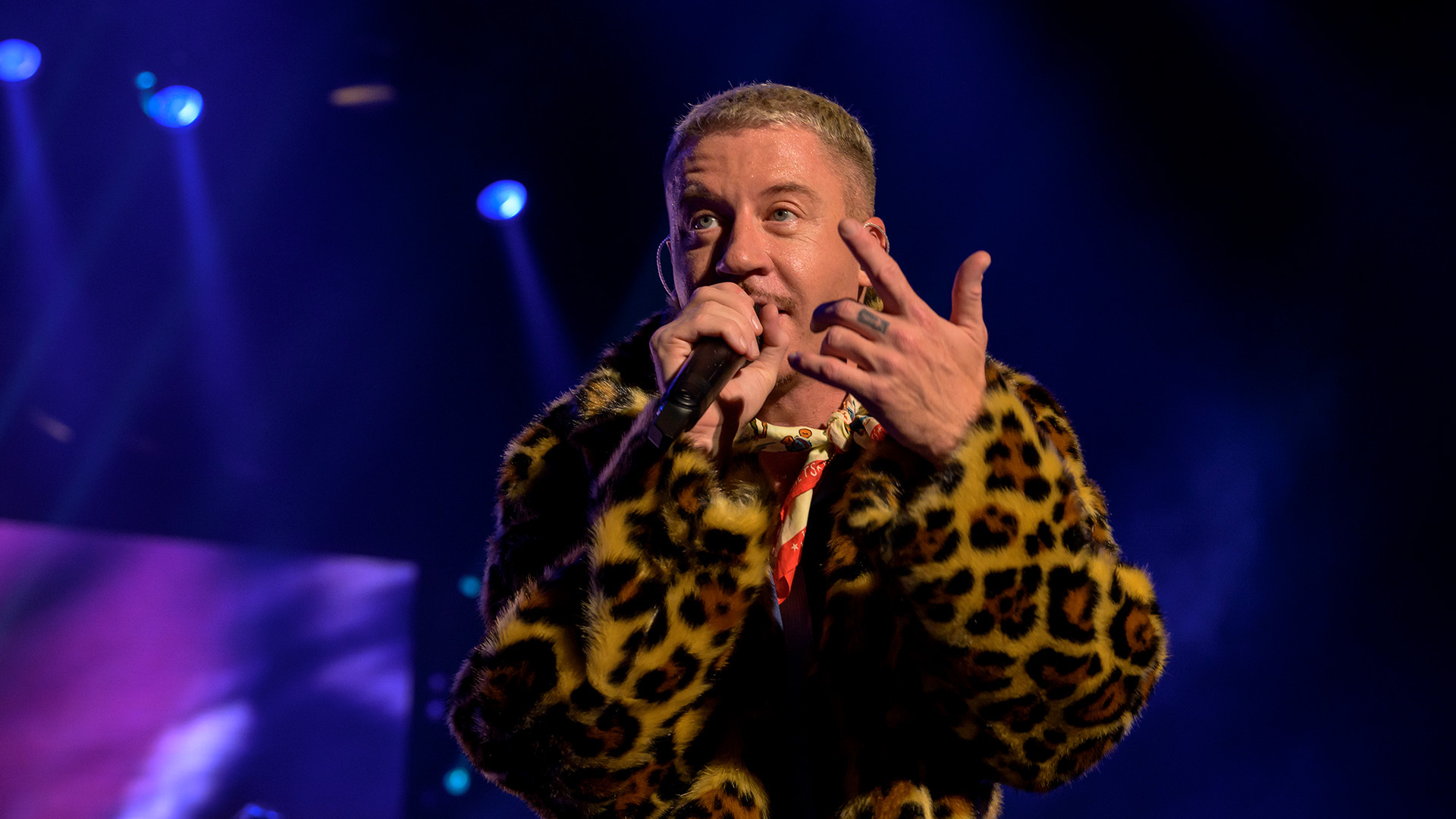
[KENNEDY FELTON]
A new song from rapper Macklemore is making headlines for calling out high-profile figures like President Donald Trump and Elon Musk, all while shining a spotlight on political and social issues around the globe.
Macklemore’s latest release is a sharp departure from his usual feel-good songs but not unfamiliar territory for the rapper who’s addressed social issues in previous songs. In this release, he expresses support for Palestine, criticizing U.S. military aid to Israel amid the ongoing conflict in the Middle East. He also takes aim at Trump and Israeli Prime Minister Benjamin Netanyahu, describing what he sees as a system that prioritizes power over human lives.
In the same verse, the rapper also criticizes social media companies, accusing them of manipulating algorithms and suppressing certain content. In the song, he suggests terms like “hashtag Free Palestine” have been shadowbanned to limit visibility.
As the chorus begins, he switches his focus to Elon Musk, saying, “And Elon, we know exactly what that was.” This line references Musk’s controversial arm gesture at Trump’s inauguration event.
Beyond the U.S. and social media, the song also mentions ongoing conflicts in Sudan and Congo, urging freedom for these regions. Sudan has been grappling with a civil conflict between rival military factions, displacing millions and fueling a humanitarian crisis.
In Congo, decades of violence linked to armed groups vying for control of resources have left millions without access to basic necessities. Macklemore’s music video pairs these messages with images of destruction, as well as scenes of resilience from communities impacted by war.
The song has received mixed reviews, with many people thanking Macklemore for his courage to use his platform to highlight ongoing issues, while others say he should stick to his older style of music.
Macklemore isn’t the only artist to use music as a platform for global issues. On the other side of the Middle East conflict, singer-songwriter Five for Fighting released a song last January addressing the October 7th attacks and the rise in global antisemitism. That April, he traveled to Tel Aviv, Israel, to perform the song in front of a crowd of Israeli citizens.
Macklemore’s song is currently only available on his social media pages. Despite the song’s nature, his efforts are rooted in raising awareness and aid. He’s pledged all proceeds from his song to UNRWA, the United Nations agency that supports Palestinian refugees.











